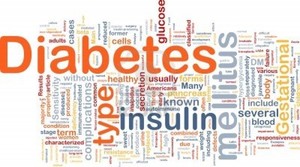Will biosimilar insulins be cheaper is a question raised by authors Lutz Heinemann and Alan Carter and one that they say is a clear yes [1].
Biosimilar insulins first became available in the US and Europe in August and September 2014, respectively [2, 3]. Eli Lilly/Boehringer Ingelheim’s Abasaglar (Europe)/Basaglar (USA) (insulin glargine) was the first biosimilar insulin to be approved in the highly regulated regions. While a fast acting insulin analogue biosimilar, Insulin lispro Sanofi (insulin lispro) was also approved by the European Medicines Agency (EMA) in May 2017 [4].
Heinemann and Carter acknowledge that uptake of biosimilar insulins has, until now, been low. However, they point to the fact that these biosimilars have only been on the market in the US and Europe for a ‘short period of time’ and as yet they have no other biosimilar competitors. The authors cite reluctance by prescribers to switch patients to biosimilar insulin and lack of long-term safety and efficacy data as possible causes of the low uptake. In Germany, the market share of Abasaglar is just 5% of the basal insulin analogue market.
However, the high cost of insulin treatment, combined with the increasing number of patients with diabetes on insulin, present a true challenge to healthcare systems. This is where insulin biosimilars represent an opportunity to reduce costs, while maintaining quality and safety.
Although massive price reductions, like those seen with generics are not expected with biosimilars even small reductions in price could lead to big savings when considering the high cost of treatment. The list price of Basaglar in the US is set at a 15% discount versus Sanofi’s originator insulin glargine, Lantus. This translates into savings of ~US$56/month or US$1.86/day for a patient switching from Lantus to Basaglar. This has already led to insurance companies and pharmacy benefit managers in the US endorsing Basaglar and giving exclusive formulary positioning to Basaglar over Lantus, e.g. Express Scripts. This is no problem for new patients, but the issue of switching rears its ugly head when considering changing stable patients onto a biosimilar insulin. Although the US Food and Drug Administration has issued draft guidance concerning the interchangeability of biosimilars [5], it has, as yet, still not approved any biosimilar as interchangeable with its reference biological.
More biosimilar insulins may soon be on the way. Biocon/Mylan submitted their candidate insulin glargine biosimilar to EMA for approval in November 2016 [6]. Samsung Bioepis/Merck submitted their candidate insulin glargine biosimilar (MK-1293/SB9) to FDA for approval in August 2016 and to EMA in December 2015 [7].
Conflict of interest
The authors of the research paper [1] reported conflicts of interest, including being a member of advisory boards/consultant for a number of companies that are developing novel insulin and biosimilar insulins
For full details of the authors’ conflict of interest, see the research paper [1].
Editor’s comment
Readers interested to learn more about reducing costs with biosimilars are invited to visit www.gabi-journal.net to view the following manuscript published in GaBI Journal:
Reducing healthcare costs and building trust in biosimilar medicines
GaBI Journal is indexed in Embase, Scopus, Thomson Reuters’ ESCI, and more.
Readers interested in contributing a research or perspective paper to GaBI Journal – an independent, peer reviewed academic journal – please send us your submission here.
Related articles
Biosimilars of insulin lispro
Biosimilars of insulin glargine
References
1. Heinemann L, Carter AW. Will biosimilar insulins be cheaper? Diabetes Technol Ther. 2017;19(9):513-5.
2. GaBI Online - Generics and Biosimilars Initiative. European approval for biosimilar insulin [www.gabionline.net]. Mol, Belgium: Pro Pharma Communications International; [cited 2017 Nov 3]. Available from: www.gabionline.net/Biosimilars/News/European-approval-for-biosimilar-insulin
3. GaBI Online - Generics and Biosimilars Initiative. FDA grants tentative approval for insulin treatment [www.gabionline.net]. Mol, Belgium: Pro Pharma Communications International; [cited 2017 Nov 3]. Available from: www.gabionline.net/Biosimilars/News/FDA-grants-tentative-approval-for-insulin-treatment
4. GaBI Online - Generics and Biosimilars Initiative. EMA approval for insulin and rituximab biosimilars [www.gabionline.net]. Mol, Belgium: Pro Pharma Communications International; [cited 2017 Nov 3]. Available from: www.gabionline.net/Biosimilars/News/EMA-approval-for-insulin-and-rituximab-biosimilars
5. GaBI Online - Generics and Biosimilars Initiative. FDA issues draft guidance on biosimilar interchangeability [www.gabionline.net]. Mol, Belgium: Pro Pharma Communications International; [cited 2017 Nov 3]. Available from: www.gabionline.net/Guidelines/FDA-issues-draft-guidance-on-biosimilar-interchangeability
6. GaBI Online - Generics and Biosimilars Initiative. Mylan and Biocon submit insulin glargine biosimilar to EMA [www.gabionline.net]. Mol, Belgium: Pro Pharma Communications International; [cited 2017 Nov 3]. Available from: www.gabionline.net/Biosimilars/News/Mylan-and-Biocon-submit-insulin-glargine-biosimilar-to-EMA
7. GaBI Online - Generics and Biosimilars Initiative. FDA accepts application for Merck’s follow-on insulin glargine [www.gabionline.net]. Mol, Belgium: Pro Pharma Communications International; [cited 2017 Nov 3]. Available from: www.gabionline.net/Biosimilars/News/FDA-accepts-application-for-Merck-s-follow-on-insulin-glargine
Permission granted to reproduce for personal and non-commercial use only. All other reproduction, copy or reprinting of all or part of any ‘Content’ found on this website is strictly prohibited without the prior consent of the publisher. Contact the publisher to obtain permission before redistributing.
Copyright – Unless otherwise stated all contents of this website are © 2017 Pro Pharma Communications International. All Rights Reserved.








 0
0











Post your comment